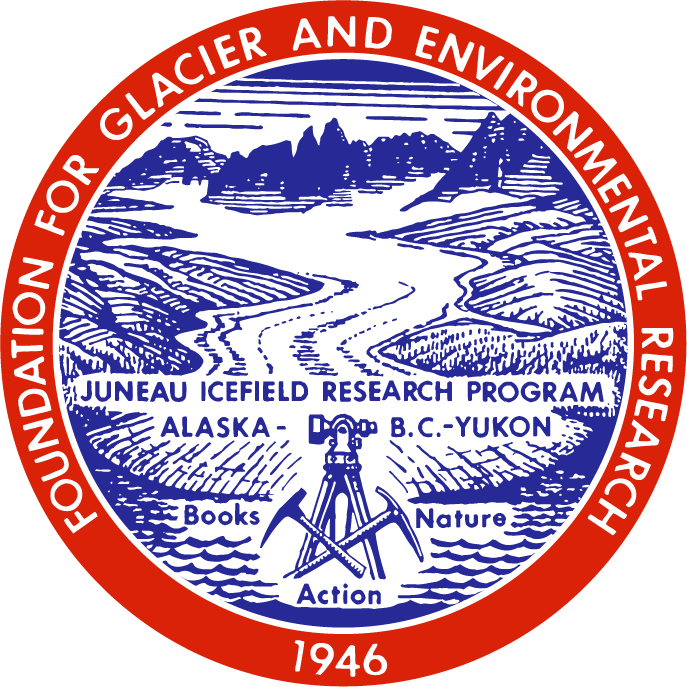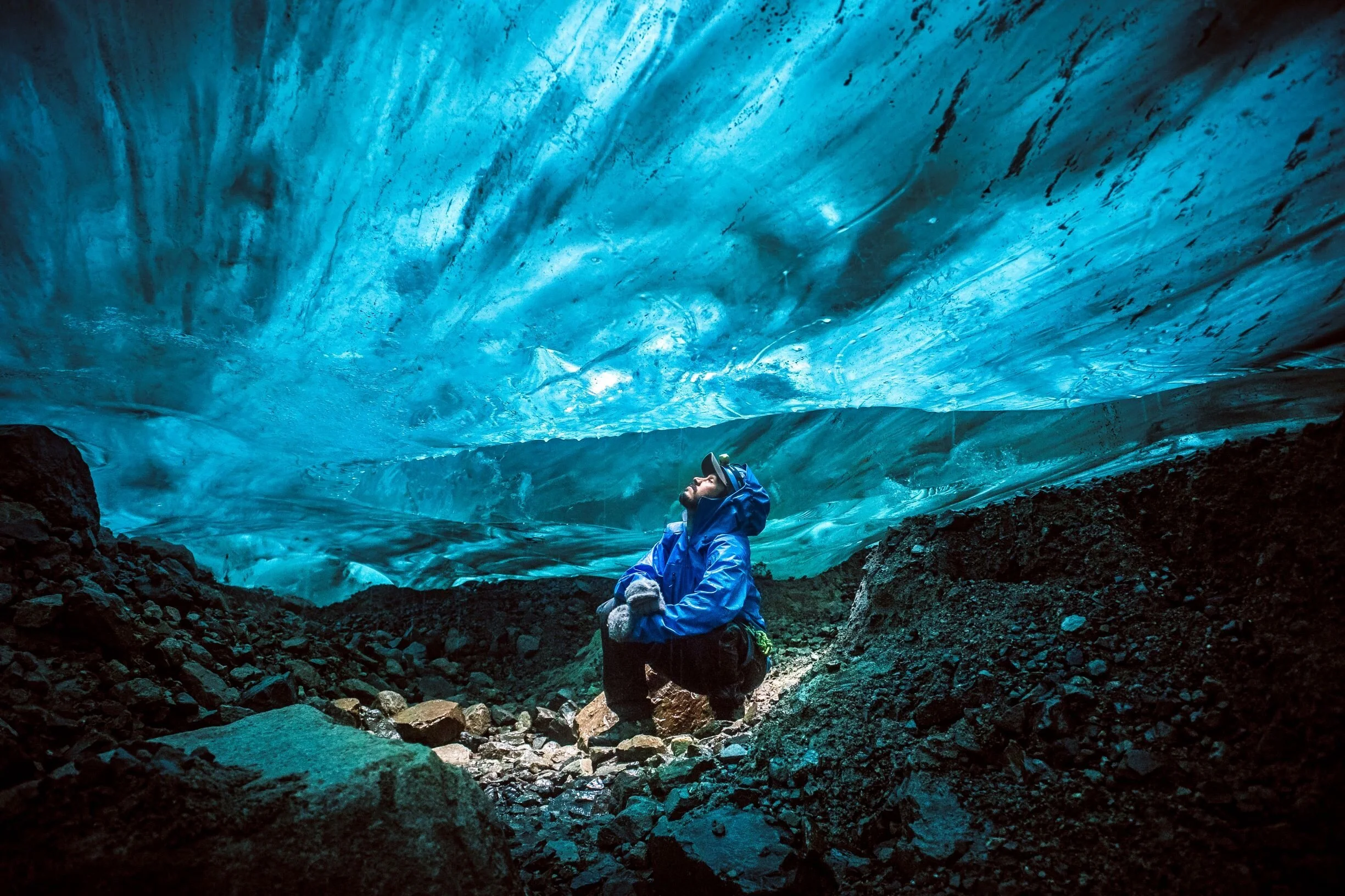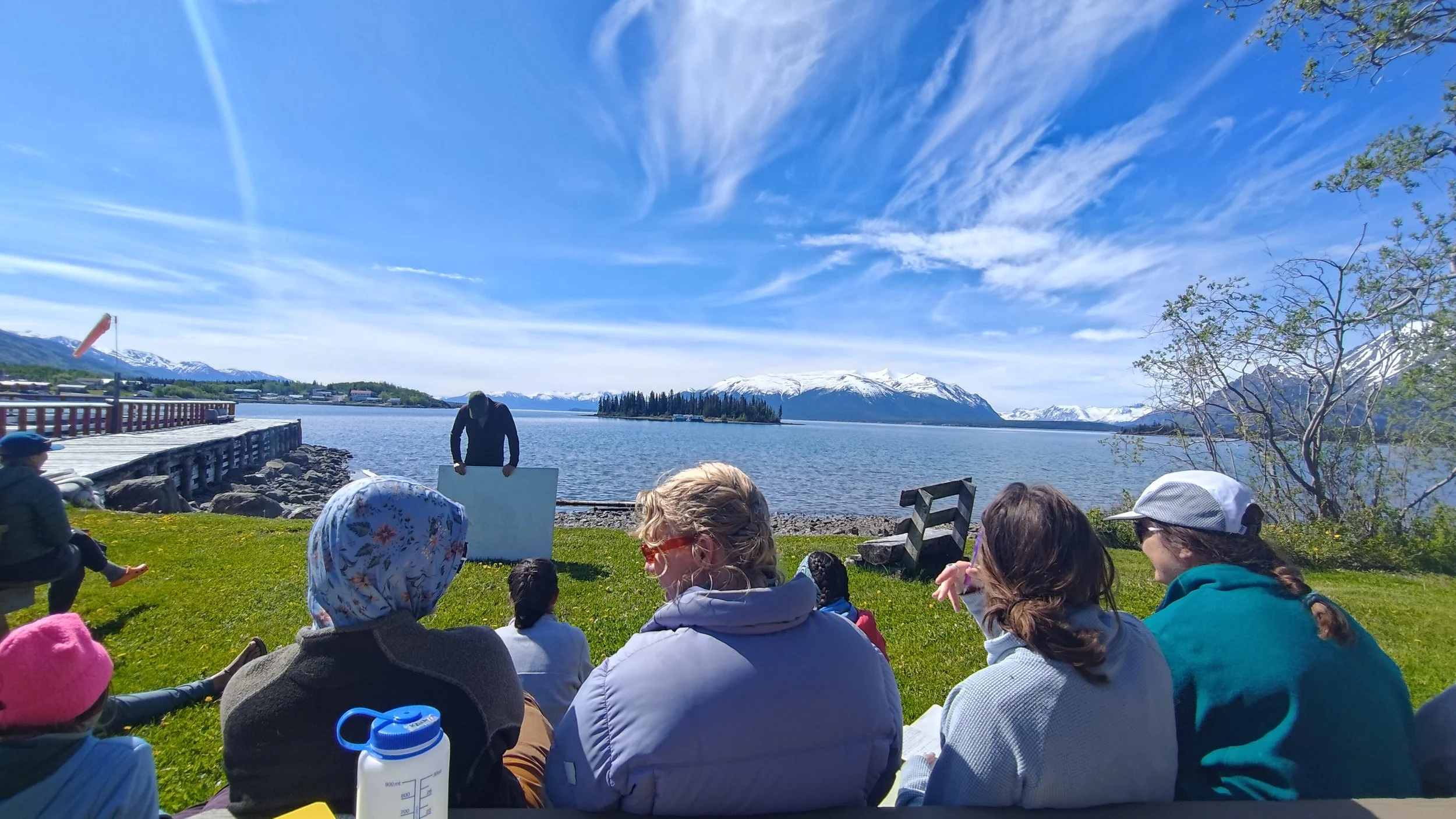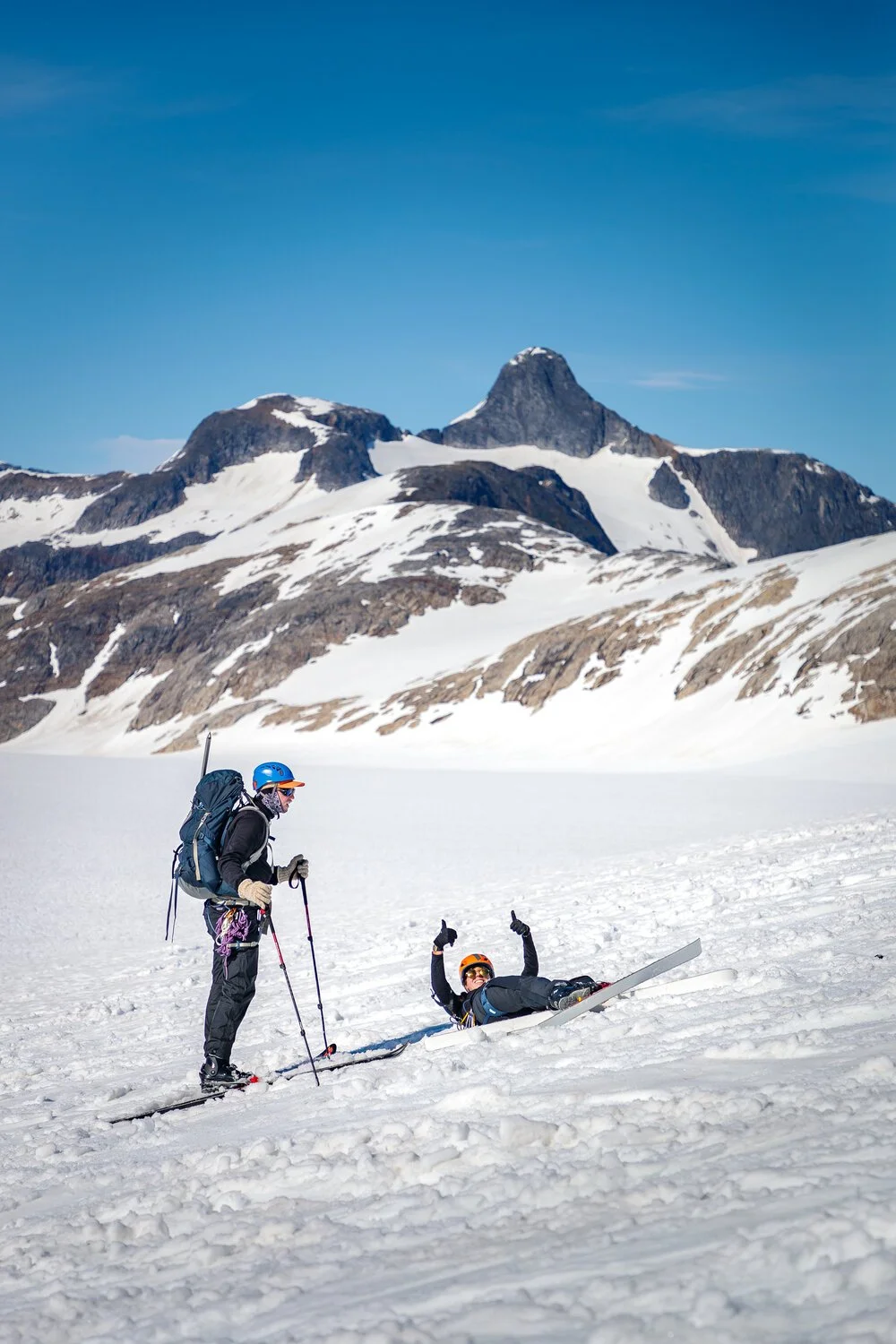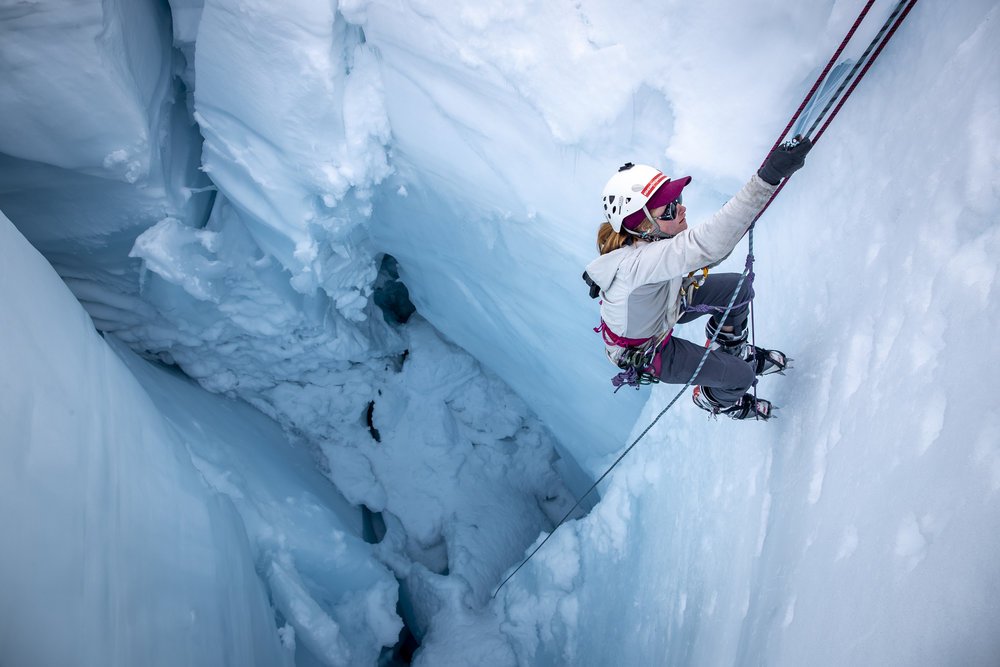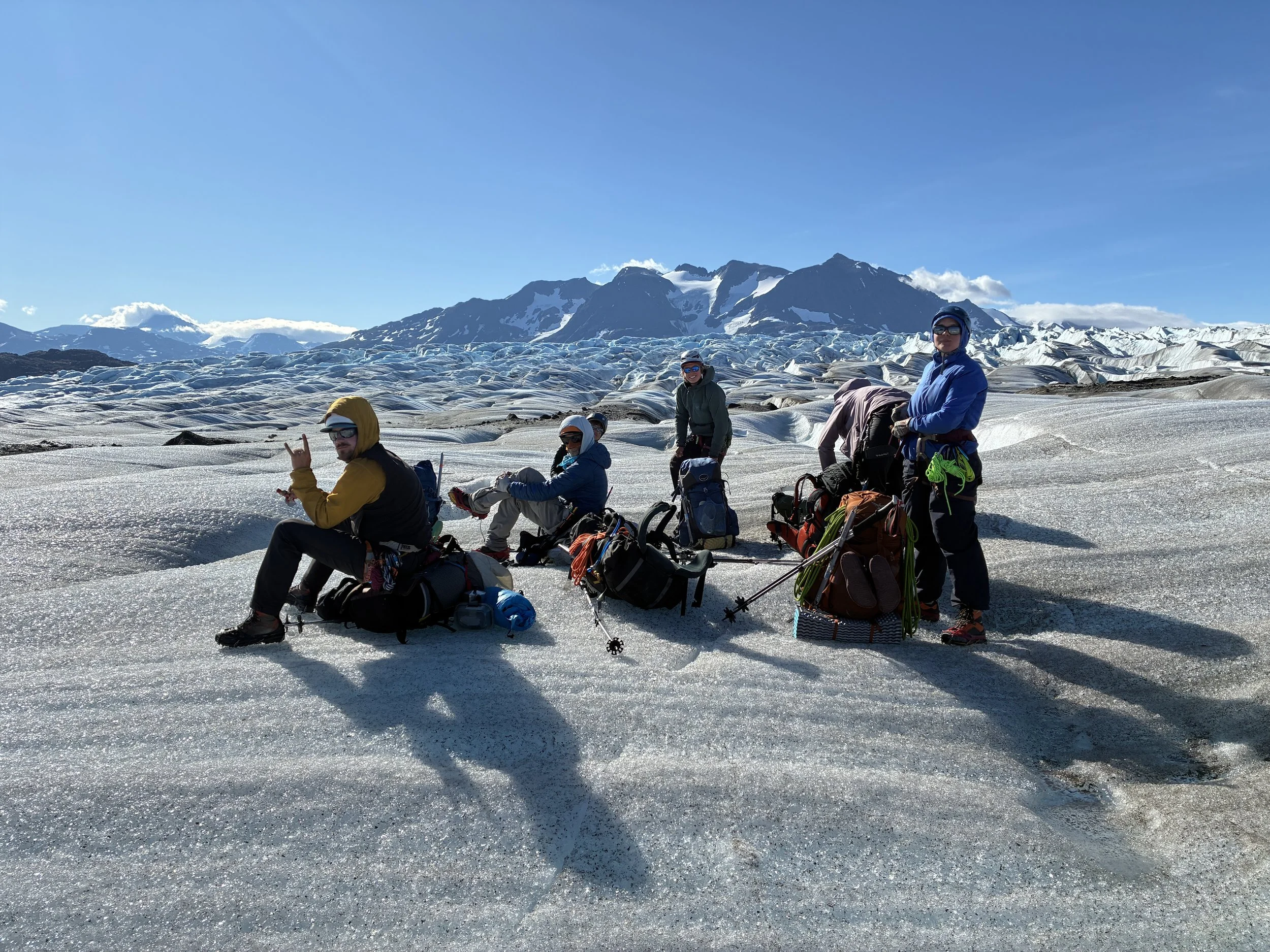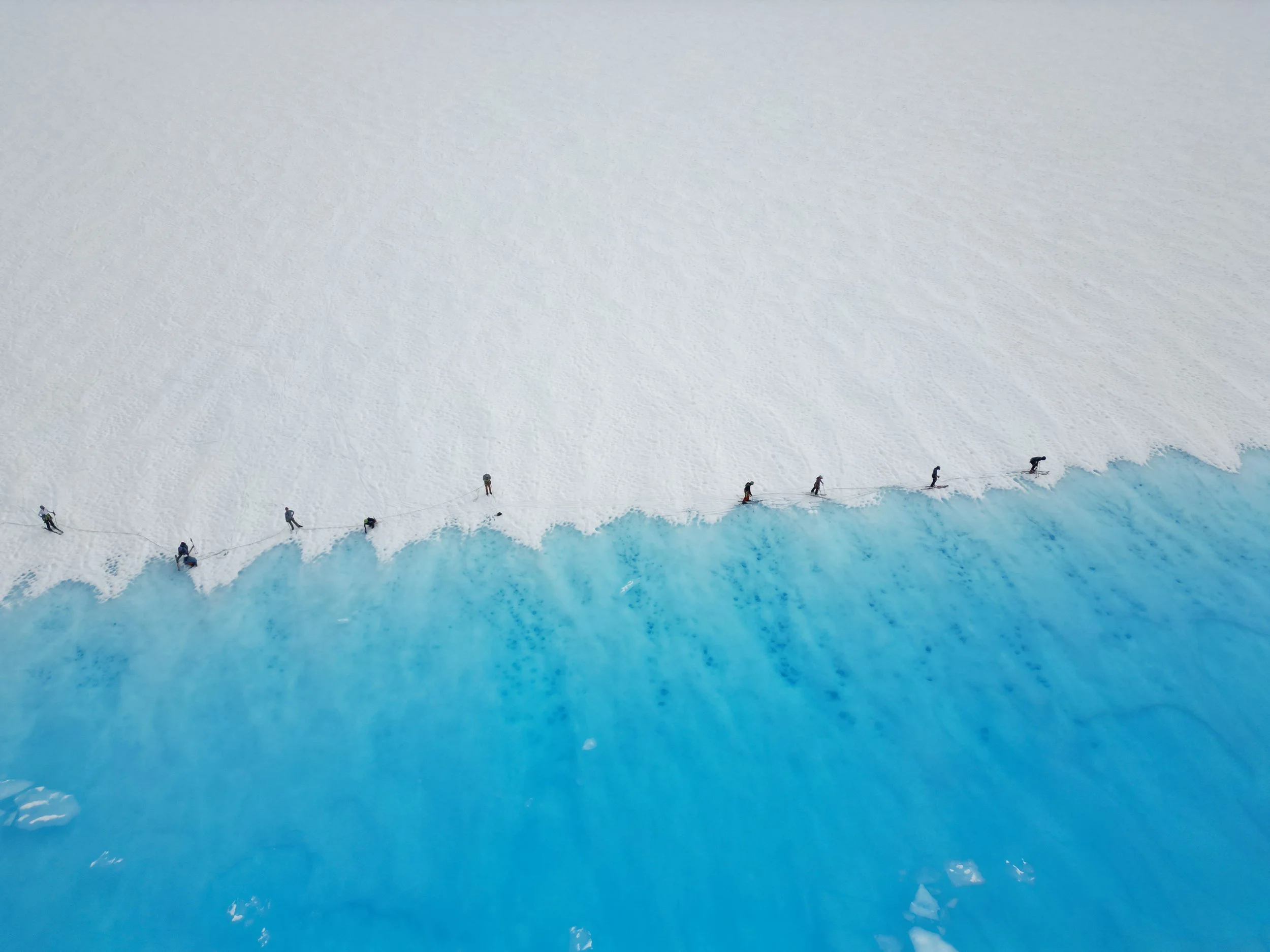
Curriculum
JIRP is, at its heart, an Earth science education and training program. We teach students how to do field work in glacial environments competently and efficiently so they can understand and contribute to glacier sciences, climate sciences, and science education and communication. To meet this goal, JIRP teaches both field research skills and mountain and glacier travel skills. Below you can find descriptions of the science curriculum and the alpine skills curriculum we teach during the Undergraduate Field Course.
Earth Science & Field Skills
Learning Objectives
Science Curriculum
We seek applicants who are NOT already glaciologists—our curriculum assumes you've never done anything quite like this before, which is exactly why you're applying. The academic curriculum is taught at an undergraduate level, though we also accept advanced high school students (must be 18 by program start), early-stage graduate students, and those that are not currently enrolled in school (post-bacc, gap-year, and non-traditional students). Intermediate and advanced graduate students are often better served in our Graduate Field Course.
JIRP’s Undergraduate Academic Curriculum incorporates topics ranging from glaciology to biogeochemistry, and science communication. The core academic program remains the same each year, though topics may be added depending on the faculty who are on the Icefield with the students.
Guiding Academic Questions
-
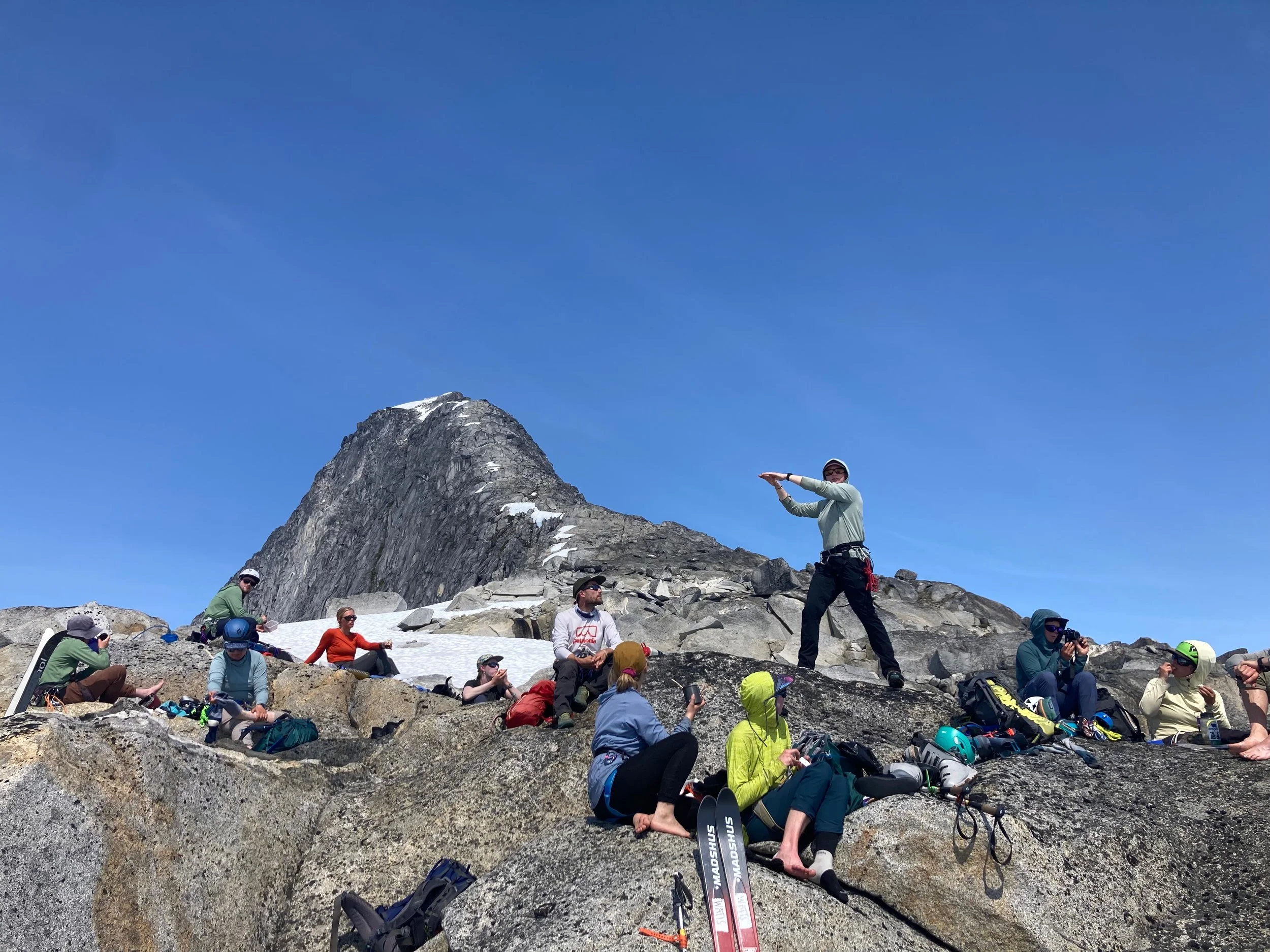
Glaciology
Guiding question: How do glaciers work?
Essential components/anatomy of a glacier
Different types of glaciers
Glacier mass & energy balance
Conditions that affect glacier behavior
Linking observations to conceptual models
-
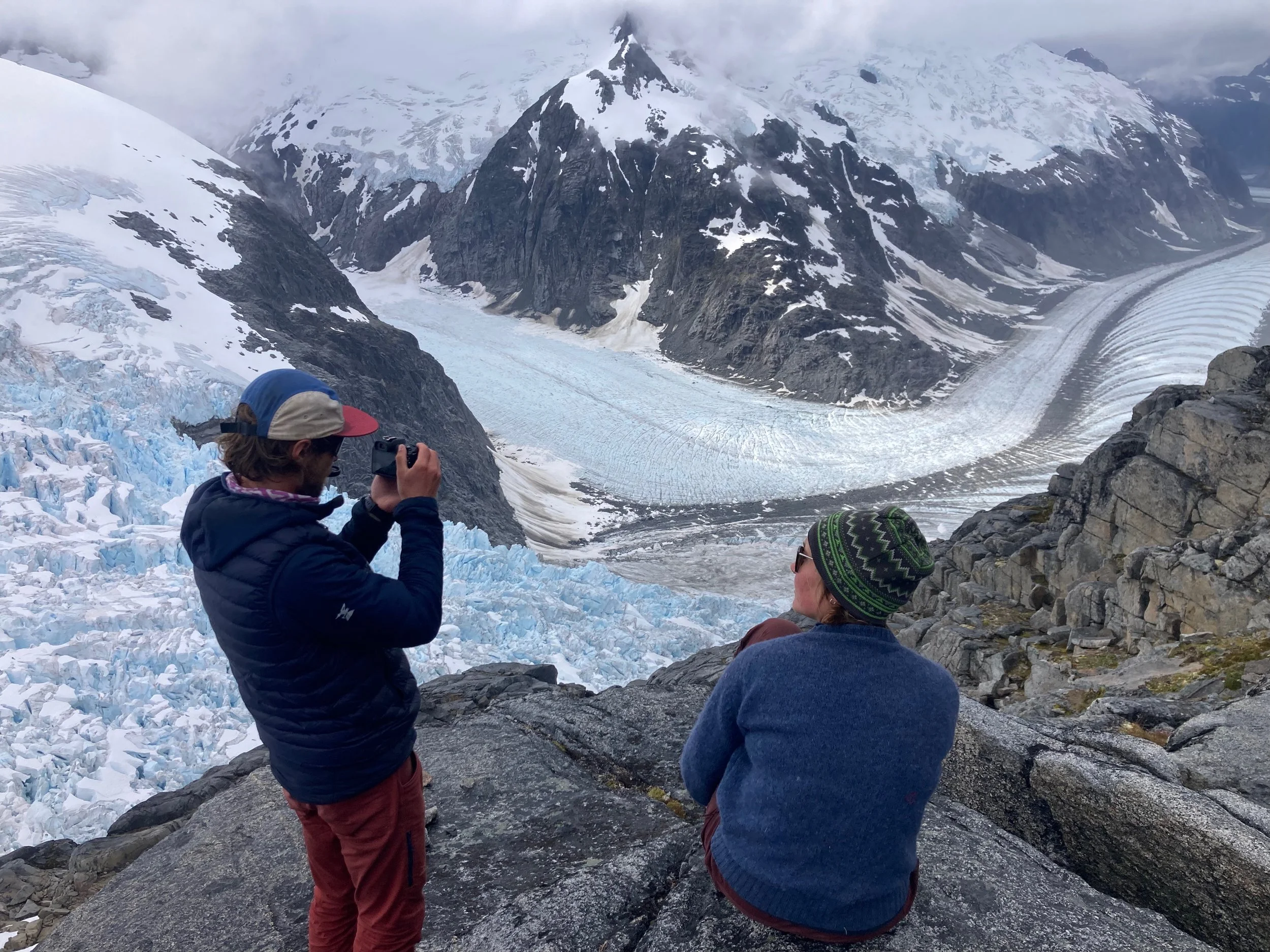
Glaciers in Context
Guiding question: How do glaciers relate to their surrounding environment?
Climate systems and relationship between climate and weather
Links between tectonic, erosional, and depositional processes
Spatial and temporal variability of life on and around the Icefield
Biogeochemical cycles, conditions, and processes conducive to life
Hydrologic system of linked Icefield and ocean
-
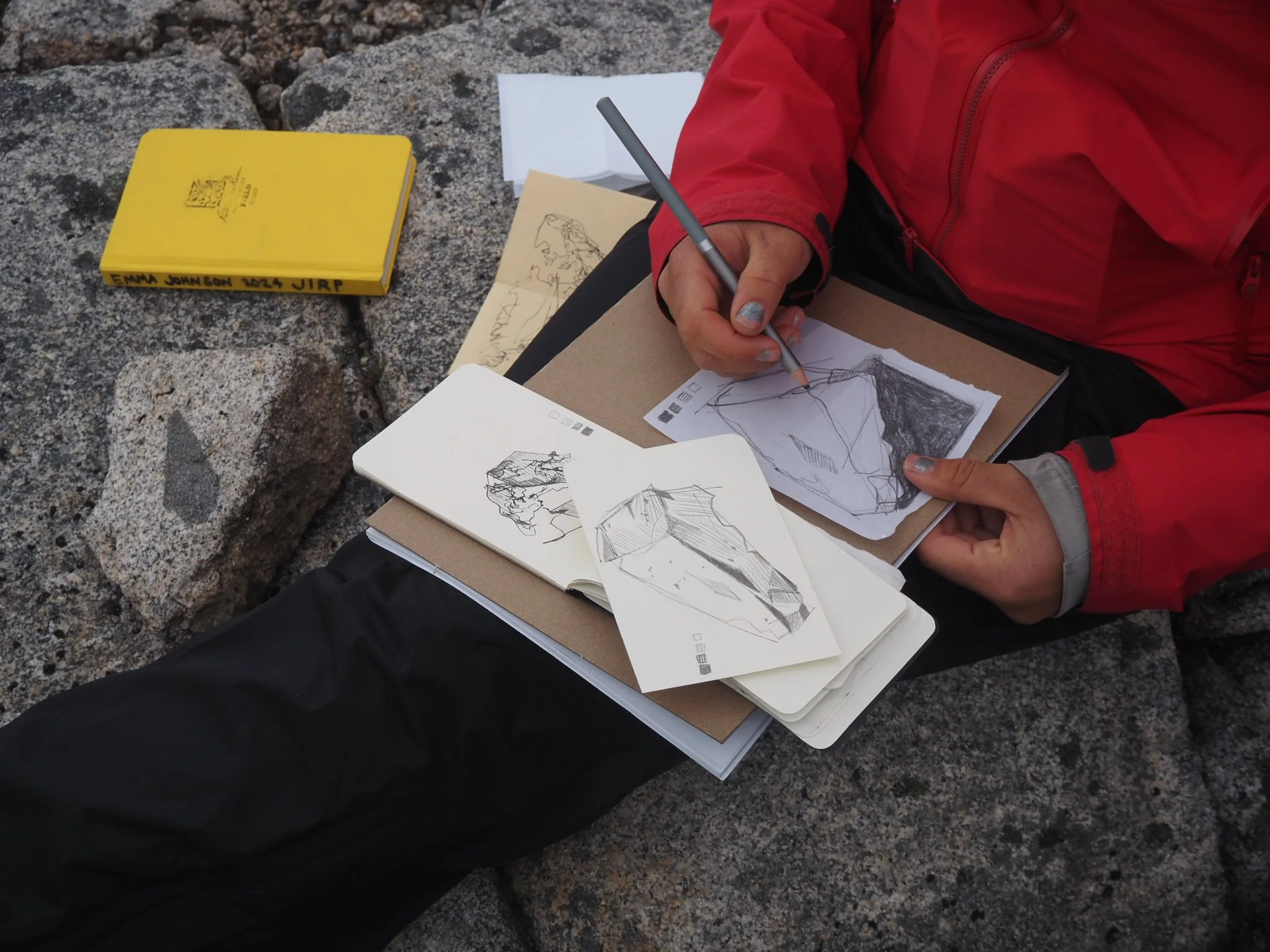
Field Methodologies & Skills
Guiding question: How do we study glaciers and surrounding environments?
Learn how to make detailed field observations
Plan and carry out fieldwork to approach scientific questions
Analyze data (using statistics, models, etc.)
Apply verbal, written, and artistic skills to communicate effectively within the science community and with the general public
-
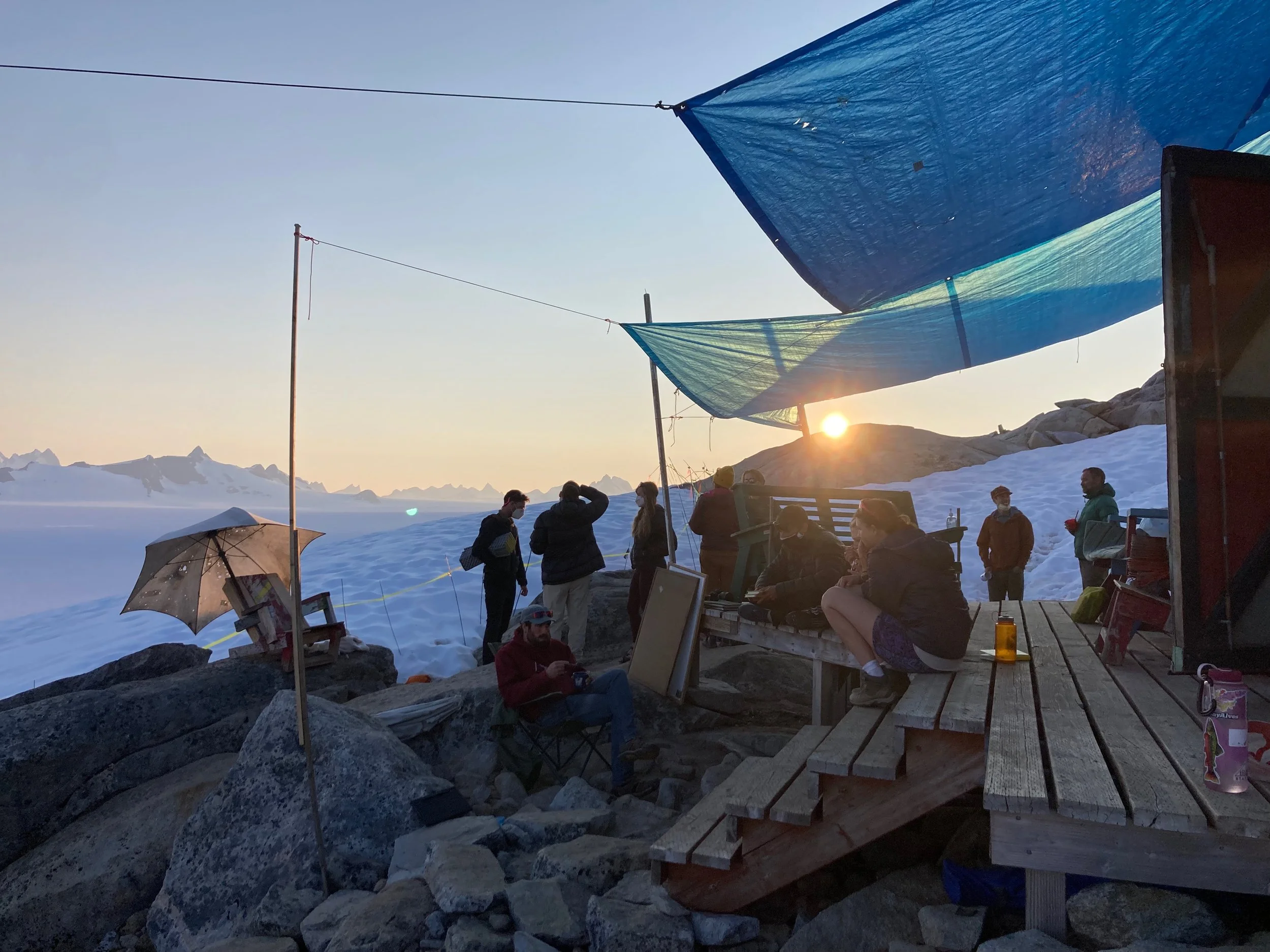
Perspectives
Guiding question: What voices and experiences should be considered when studying glaciers?
Influence of lived experience on observations and science
Historical narratives of science exploration in the context of social justice & equity
Tlingit history, stories, and relationship to the region
Collaboration between western and Indigenous knowledge systems and within multidisciplinary teams
Academic Credit
Students receive academic credit for the Undergraduate Field Course through one of our university partners. Most students will take credits through the University of Colorado Boulder. Certain students may also be eligible to receive credits through the University of Maine or the University of Alaska Southeast. Students will receive six upper-level undergraduate Earth science credits on their transcripts. This designation reflects the overall academic program of JIRP, which includes a broad survey of Earth system topics and field research methods. Individual lessons on JIRP range from introductory or mid-level (most) to upper and even advanced-level (some), depending on what opportunities individual students pursue. We do this to make JIRP accessible to the widest array of students possible, including those from non-Earth science backgrounds. We encourage our higher-level students (undergraduate seniors, post-baccalaureate, and early-stage graduate students) to take advantage of individual and small-group opportunities with faculty whose expertise interests them.
Students are expected to enroll in academic credits, though this may be waived in special circumstances. Please contact the Director of Academics, Brad Markle (brad@juneauicefield.org) if you believe such a waiver would be beneficial to you. Fees for academic credit are paid to one of our partner universities; see Field Fees & Financial Support page for more details. The field fee paid directly to JIRP is separate from the fees for course credit that are paid directly to our partner universities.
Alpine Skills Curriculum
If you were to walk in to any science lab, you'd be expected to observe some basic safety principles. Depending on the lab those might be about close-toed shoes and safety glasses or not putting an open mug of coffee right next to a keyboard. On the Juneau Icefield, alpine skills training is athletic and may seem complex, but it falls under the same principle: while we collect data and explore, how can we best protect ourselves, our team, our tools, and our environment?
The JIRP Alpine Skills Curriculum starts from the very beginning - it’s designed to include students who have no experience in backcountry skiing, mountaineering, or even backpacking and hiking. That said, the expedition is intrinsically strenuous. We travel by foot and ski for eight weeks, carrying packs that weigh up to one-third of our body weight. We expect students to take our pre-season fitness guidance seriously.
Orientation Week
Training starts with learning how to efficiently pack backpacks, as well as taking two separate day hikes to get used to carrying big packs and long days on the trail. We'll also start to get to know each other and build relationships, because working in the backcountry is best done when you have open communication with your teammates.
Topics we cover:
Hydration and Nutrition
Sun protection
Blisters & foot care in cold/wet environments
Bear safety
Packing a backpack
Layering for the weather
Physical health + hygiene
Mental health + hygiene
Knot tying
Climbing harness fitting and use
Rope ascent/descent using prusik hitches
Alpine Skills Training
Weeks Two and Three of the program are all about getting everyone comfortable on skis and on rope teams, and thriving in the glacial environment. Some students come to JIRP comfortable on skis, some come comfortable with technical rope systems, and some come having never dealt with either. We will start from the very beginning with everything.
Ski lessons start in camp with how to put your ski boots on properly. Then we'll move out to the glacier, find a flat place with nice soft snow, and work in small groups of similar ability to get skis on and ski over flat surfaces. Further lessons will focus on skiing uphill, skiing downhill in a controlled manner, skiing on rope teams, and recognizing when terrain is too challenging to ski.
Mountaineering lessons also start in camp with knot tying and how to put your harness on without tangling the leg loops. When we move out to the glacier to practice crevasse rescue systems, we'll stay in an area where everyone can walk around without fear of falling. We'll run through basic scenarios in teams so that it makes sense to everyone. Whether you learn better by drawing diagrams on the whiteboard, listening to someone else describe the system, running a whole scenario by yourself, or by working with a team, you'll have time to get a handle on crevasse rescue.
We'll also learn to self-arrest. Self-arresting, using your knees and ice axe to stop yourself sliding down a snow slope, is an important skill for traveling in alpine environments. We'll use the sunniest days to spend rolling around in the snow on a slope with a shallow run out.
During the first three weeks of alpine skills training we'll be practicing keeping ourselves warm, dry, fed, and hydrated. We'll talk about layering your clothes, eating and drinking the right things to fuel your body (carbs, proteins, fats, and plenty of water), and recognizing the signs of hypothermia and dehydration in yourself and your teammates.
The culmination of Alpine Skills Training is the Micro-Traverse: One full day on the Lemon Creek Glacier, combining all the skills and practicing the equipment transitions we need for the two-day trip into the middle of the Icefield.
Topics we cover:
Putting on skis and ski boots properly
Skiing in a controlled manner over flat, uphill, and downhill topography
Self arrest with an ice axe, without an ice axe, and on skis
Roping up and rope team travel on ski and on foot
Crevasse rescue basics
Transitioning between ski- and foot-travel efficiently
Further discussion of backcountry sun protection, hydration/nutrition, and layering for the glacial environment
Radio communication
Continuing Practice
Topics we cover:
Navigation by compass and by GPS
Steep snow travel
Intermediate-level crevasse rescue techniques
Descending into a crevasse for exploration
Route-finding
Logistical planning for overnights (food, shelter, research equipment, etc.)
Group management strategies
Throughout the summer, JIRPers will use their skiing and mountaineering skills every day to get themselves around on the glaciers doing field-based, science-related activities. We will also continue to work with small groups of students on intermediate-level skills.
Working on a Team of Mixed Ability
JIRP believes whole-heartedly that we can accomplish more scientifically and as a community if we cooperate. We purposefully select a student body that has a wide range of experience in skiing, climbing, hiking, and backcountry travel. There will be students every year who are experts in some alpine skills topics, and students who have never spent the night outside or seen snow.
For some students, some lessons will be a review. Some days, we will offer intermediate and advanced lessons simultaneously with beginner lessons so that everyone is learning new skills. Other days, we will work in groups of mixed ability so experienced students can help out their peers. At the beginning of JIRP everyone is new to something, and everyone finds something they're already familiar with.
If skiing and mountaineering aren't yet in your skillset yet, Alpine Skills Training will involve a lot of new information. When you’ve got your feet under you, however, we will capitalize on the expert skills you did bring with you. Everyone brings something they’re good at, and we won’t be shy about asking you to help a peer learn to cook, fix a door latch, explain the finer points of math-heavy lectures, or just be a kind ear for someone who misses home. There are a million things to do on an expedition like JIRP, and everyone pitches in.
If you're already familiar with skiing and/or mountaineering, don't think for a second this is going to be boring. There is plenty of terrain to explore during the first weeks of the summer. Additionally, we will spend significant time with experienced students getting on the same page about the systems JIRP uses. We love it when students bring experience and different perspectives to the program, but it's important that we are all familiar with the same basic systems so things move smoothly.

